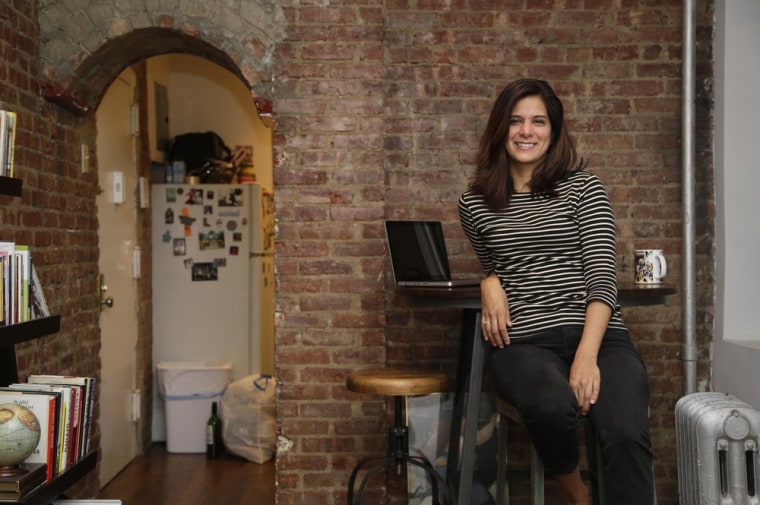Budget-conscious travelers heading to New York City in the coming months could feel a chill in the air — and it’s not just the weather. With a legal battle brewing between state officials and the popular short-term rental site Airbnb, the issue could prompt some of the site’s local users to rethink their roles as part-time landlords.
“There are lots of people who are hesitant about posting on Airbnb because of the lack of clarity about what’s legal and what’s not; this will only add to that,” said Arun Sundararajan, a professor at NYU’s Stern School of Business. “It may also give people who may be coming to the city pause about whether it’s OK or not for them to stay at an Airbnb.”
Thousands of New York City residents list apartments or rooms for short-term rentals on websites such as Airbnb. Officials say such practices are illegal in many cases, avoid taxes, undercut the hotel industry, and pose threats to building safety. Last week, New York State Attorney General Eric Schneiderman subpoenaed Airbnb, demanding data on the 15,000 New York-based members who serve as “hosts.”
In response, Airbnb filed a petition requesting that the court quash the subpoena. When approached for comment, a company spokesman directed NBC News to a company blog where a post by David Hantman, head of global public policy, reads, “We believe this subpoena as written is unreasonably broad, and we remain committed to fighting it with everything we’ve got.”
The company also sent its members an e-mail encouraging them to sign a Save Airbnb in New York petition started by Mishelle Farer, an Airbnb host who rents out a second bedroom in her apartment in Brooklyn.
Originally posted last Friday with a goal of 20,000 signatures, the petition had 60,246 names by midday Friday and a revised goal of 70,000 signatures.
At the same time, such efforts have reignited long-festering conflicts over peer-to-peer rentals in general, dividing locals into two camps: those who see the system as a welcome response to the city’s high rents and pricey hotel rooms and those who don’t appreciate the steady flow of strangers showing up at their doors.
“Someone comes in to rent an apartment for a weekend and you don’t know who they are,” said Margaret Salacan, a personal assistant and tenants association officer in the Stuyvestant Town–Peter Cooper Village complex on Manhattan’s East Side. “We don’t need transients in and out of the building all the time; it jeopardizes the community as a whole.”
Others cite the fact that older residential buildings aren’t necessarily designed to handle the traffic that comes with constant turnover, whether it’s increased trash, inadequate fire-safety systems or general wear and tear.
“When you have people in the building who just come and go, they have no stake,” said Maurice Michaane, a Manhattan real estate agent and former Stuyvesant Town resident. For Michaane, the issue came to a head one night last year when some overnight renters without keys tried to follow him and his spouse into their building.
“There was some scuffling, some pushing,” said Michaane. “We finally called property security and the NYPD.”
In the other camp are people like June Pascal, an artist and Airbnb host who has rented rooms in her Upper East Side apartment for the last three years without incident: “Everybody’s totally respectful,” she said. “Residents and guests get to meet each other; sometimes they become friends as well.”
Other Airbnb members in New York suggest that the benefits of peer-to-peer rentals go beyond the community itself and that challenging the system in court may do more harm than good — not just for hosts and travelers but for the city itself.
“It makes everything more accessible to more people,” said Sam Shaber, a musician who has been both a host in New York and a renter overseas. “With all the increased traveling it allows, I would think the city is benefiting — they’re getting people to come to New York who normally wouldn’t be able to afford it. People should be psyched that other people want to come and see our city.”
Information from the Associated Press was included in this report. Rob Lovitt is a longtime travel writer who still believes the journey is as important as the destination. Follow him on Twitter.
